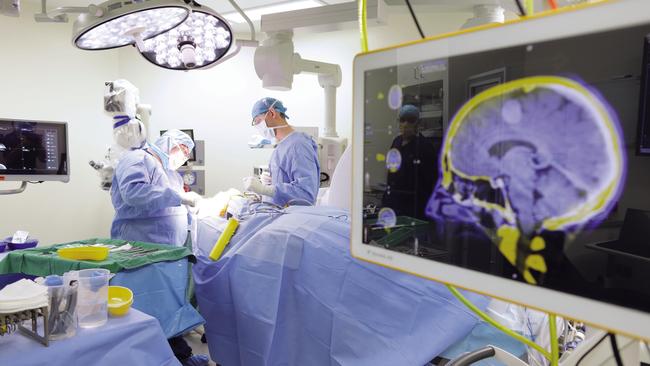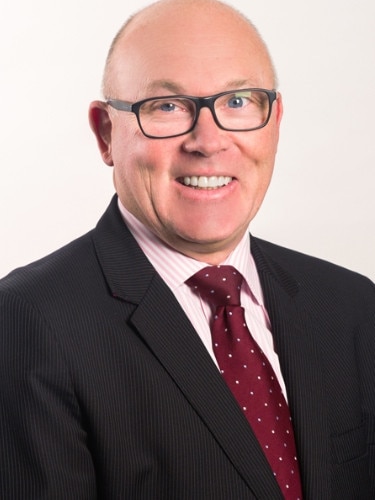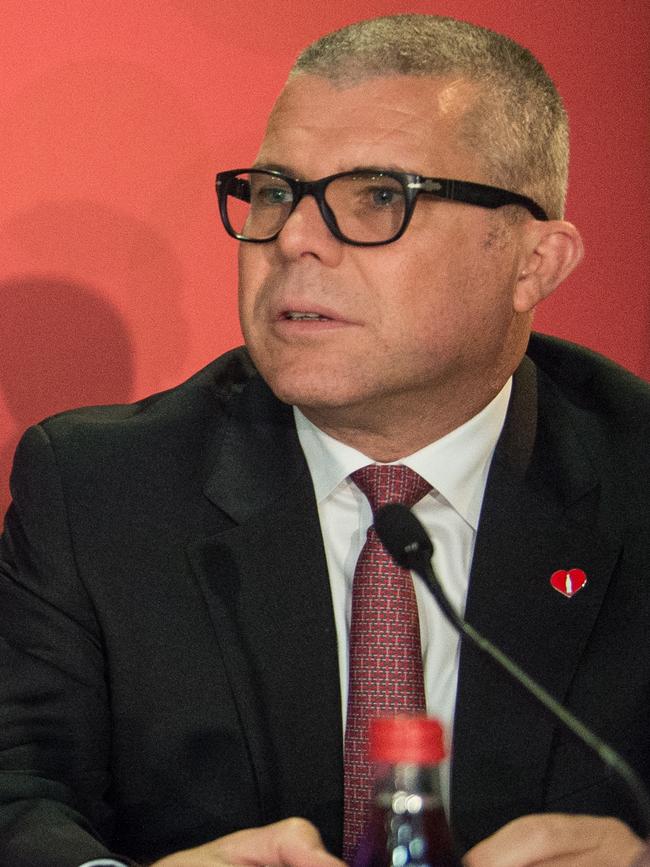Doctors seek work/life balance as Ramsay Health Care’s productivity lingers below pre-pandemic levels
Ramsay Health Care says the pandemic created backlog of elective surgery is still congested because doctors are spending less time working after hours.

Australia’s biggest private hospital operator says the healthcare industry isn’t doing enough to slash a Covid-19-fuelled backlog of elective surgeries, and that doctors are spending less time working after hours and at weekends as they seek a greater work/life balance.
Ramsay Health Care chief executive Craig McNally says staff productivity has yet to rebound and is lagging about 5 per cent below 2019 levels.
This has hindered the company’s ability to clear the backlog of surgeries that were delayed or cancelled during three years of pandemic-fuelled restrictions.
“There’s still a backlog. We certainly as an industry haven’t done enough to address the work that wasn’t done over the last couple of years,” Mr McNally said.
“What we’re seeing – I don’t think this is necessarily a good or bad thing – but doctors practising that work/life balance is still there. Generally, doctors aren’t sort of overworking to address that goal and sort of operating at a comfortable level.
“We see that reflected in less after-hours work, less weekend work.”

Ramsay – which was the subject of a takeover bid by KKR last year – delivered a 10.9 per cent jump in revenue to $11.24bn in the nine months to March 31 while net profit surged 16 per cent to $235.1m. But margins are still below 2021 levels.
Mr McNally said he expected a “gradual recovery” in Ramsay’s earnings throughout this financial year before hitting “more normalised conditions” in fiscal 2024.
“The priority for us at the moment is to continue to get back to productivity levels that we had previously. That is a work in progress,” Mr McNally said.
“We didn’t expect that to happen, certainly this quarter, but running into the fourth quarter and the end of the financial year.”
Ramsay chief financial officer Martyn Roberts also highlighted the need to lift productivity.
“Obviously personnel costs are our biggest cost. The margin is not back to where it was even in ’21,” he said.
“The top line is coming back quite nicely but it’s coming at a cost. And the biggest focus that we’ve been talking about for quite some time now is getting productivity levels improving.
“That’s one of the biggest focuses of the team right now.”

It comes as NAB chief executive Ross McEwan told his senior leaders last week that he expected them to attend the office five days a week as part of a push to restore pre-pandemic work routines.
NAB employees are spending an average of 1.2 days a week working in the office – below its minimum guideline of two to three days a week under its hybrid working policy.
The Covid-19 pandemic has lifted employee expectations in regard to work/life balance across a variety of industries, and has even sparked a new phenomenon called the “great resignation”. If an employee doesn’t feel like their needs are being met, a tight labour market has made it easier for them to change jobs which offer greater work/life balance, requiring businesses to adopt a more nuanced approach on how they manage their workforce.
Ramsay did not provide a month-by-month breakdown of earnings – saying it would revert to half yearly from pandemic-era quarterly reports – but highlighted slower growth in December and January.
“January already kind of depletes Q3 but it was a really poor January that we had with all the surgeons and doctors taking extended leave in January,” Mr Roberts said.
“Certainly having doctors working through the night helps productivity, that’s for sure. The main metric we look at is the productive hours per inpatient day. That has been very lumpy over Covid, as you’d imagine.
“One of the key sort of targets we’ve got insight is where we were at pre-Covid and FY19.
“We’ve got close in previous months, but with the deterioration in volumes in December, January, that’s kind of moved away again.
“It’s starting to head back in the right direction now. But we’re still not back to where we were even in FY19. It’s within 5 per cent but every per cent is massive dollars.”
Mr McNally said Ramsay was relying less on agency nurses to fill shortfalls, with sick leave declining to pre-pandemic levels, but he said the Covid-19 hangover lingered.
“The path out of Covid is not expected to be smooth as the industry continues to be impacted by the restrictive guidelines around the patient pathway, which together with the resultant impact on workforce availability, may slow the pace of recovery in volumes and productivity,” he said.
But Mr McNally was upbeat about the company’s longer-term prospects and said it would negotiate improved terms with all payers – including health funds – to “reflect the inflationary environment”.
This was particularly the case for its UK mental health business, Elysium, which it acquired for $1.4bn in late 2021.
“A recovery in earnings for Elysium is dependent on the determination of an increased tariff applicable from April 1, 2023 from NHS England combined with increased occupancy and a reduction in the use of agency staff as a result of current recruitment initiatives,” Mr McNally said.
“A failure to realise these factors would result in the deterioration of Elysium’s financial outlook in the near term and may adversely impact its valuation.”
Overall, Mr McNally said the “business will continue to focus on leveraging the group’s global scale in procurement, and driving efficiency and productivity improvements where the operating environment allows”.
“The outlook for the group remains strong. The company’s world-class hospital network combined with its outstanding people and clinicians give it confidence that the business is well placed to take advantage of the positive long-term dynamics driving the healthcare industry,” he said.




To join the conversation, please log in. Don't have an account? Register
Join the conversation, you are commenting as Logout